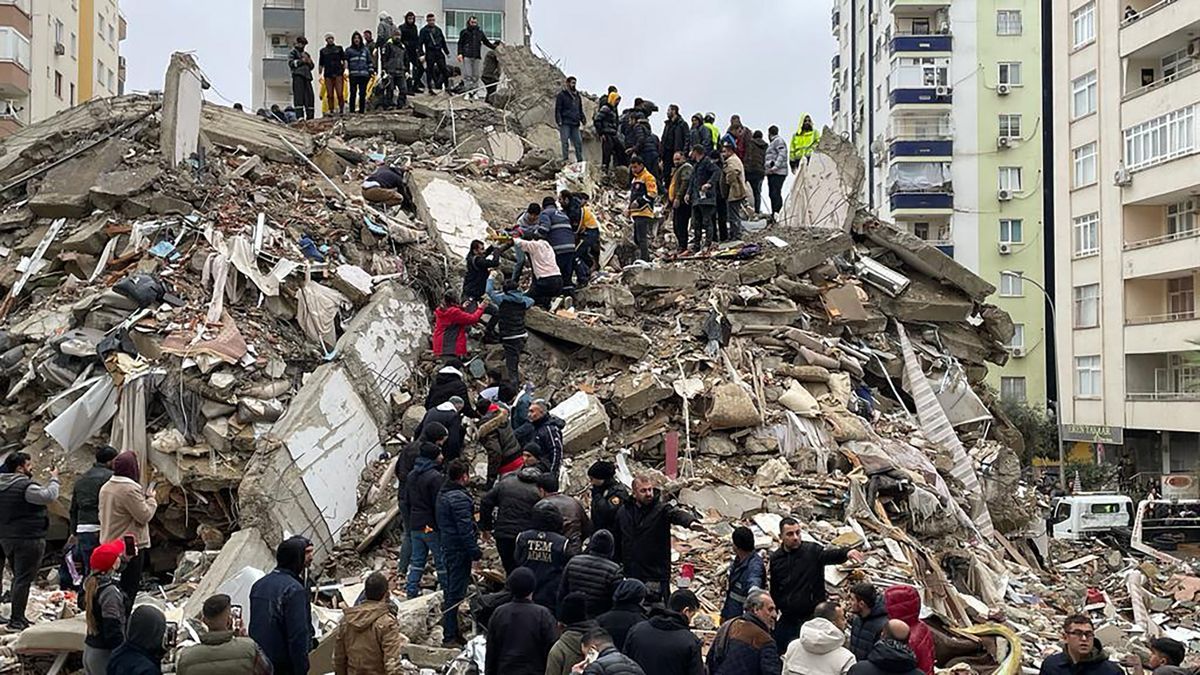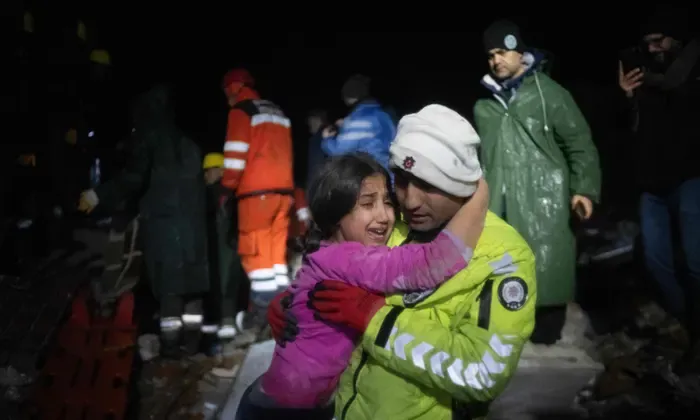Historic and deadly earthquakes hit Turkey and Syria
Overnight on Sunday, Turkey and Syria experienced an earthquake with a 7.8 magnitude.

A few minutes every morning is all you need.
Stay up to date on the world's Headlines and Human Stories. It's fun, it's factual, it's fluff-free.
The backstory: Turkey and Syria have a history of earthquakes, but most have been pretty mild. Turkey is in one of the world's most active earthquake zones, though. In 1939, the Erzincan earthquake hit eastern Turkey and killed almost 33,000 people. And in 1999, there was another major earthquake that killed over 17,000 people in Turkey's northwestern region.
More recently: Overnight on Sunday, Turkey and Syria experienced an earthquake with a 7.8 magnitude, and most people were asleep when it happened. It was one of the most powerful earthquakes in the area in the past century and was felt all the way in Cyprus and Egypt. The epicenter is near Turkey's Gaziantep, and the historic Gaziantep Castle (used since Roman times) was damaged alongside scores of homes and buildings that collapsed into rubble. Then there was a second 7.7 magnitude quake that afternoon. Over 100 seismic aftershocks have been recorded since.
The development: Already, the death toll is devastating. At least 3,800 have died, and the WHO has said this number could rise eight-fold. More than 10 search and rescue teams from the EU have been sent out to help find and save people in the worst-hit areas. Other countries have announced aid as the situation unfolds, including the US, the UK, China, Israel, Russia and Germany. People on the ground have described the experience as apocalyptic. It's hard to actually take stock of the damage right now, as the focus is on human loss.
Key comments:

"Everyone is putting their heart and soul into efforts although the winter season, cold weather and the earthquake happening during the night makes things more difficult," Turkish President Tayyip Erdogan said.
"There's continued potential of further collapses to happen so we do often see in the order of eight fold increases on the initial numbers," said the WHO's senior emergency officer for Europe, Catherine Smallwood, to AP.
"It was like the apocalypse," said Abdul Salam al-Mahmoud, a Syrian in the northern town of Atareb. "It's bitterly cold and there's heavy rain, and people need saving."
"We have been dealing with weather events and snowstorms but nothing on the scale of an earthquake of this magnitude. It just adds on to all the layers of suffering," said a UN spokesperson in northwestern Syria, Madevi Sun-Suon.
"While we were sleeping, the house started shaking; I immediately ran to my children; I did not know which one to carry; I could not reach the door, the distance was very far, and a minute of time was like years of helplessness and fear, and the fear continues with the aftershocks," said a World Vision staff member in Syria. "Most of the people are on the streets in the snow and rain, with many destroyed buildings, many victims, and many still trapped under the rubble."




Comments ()